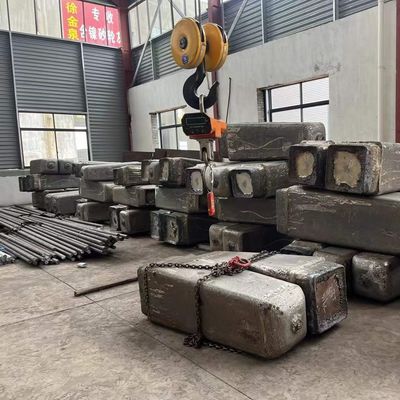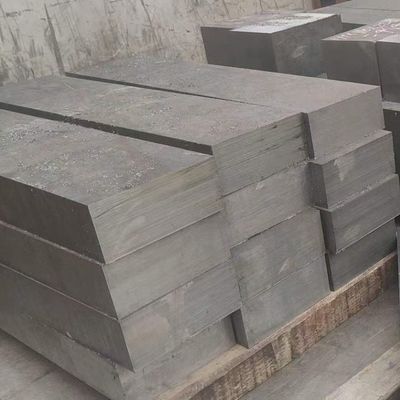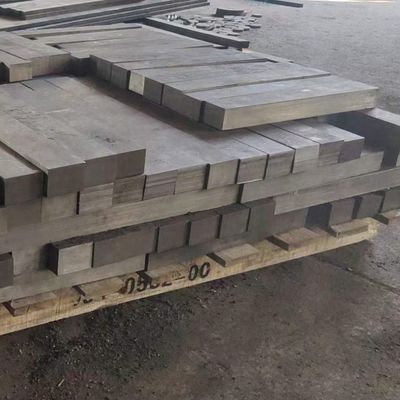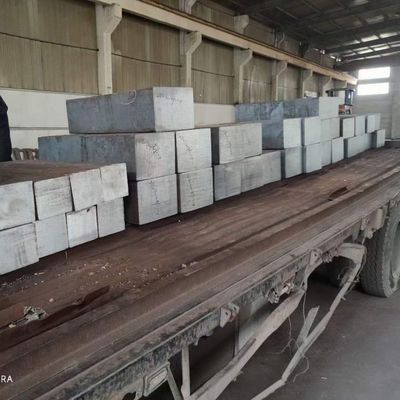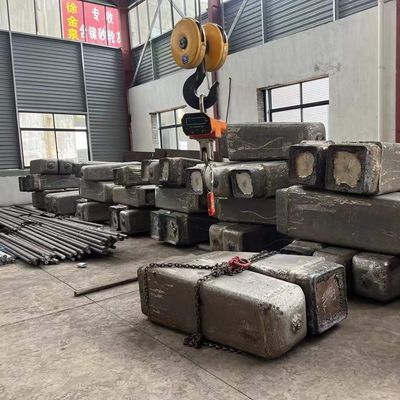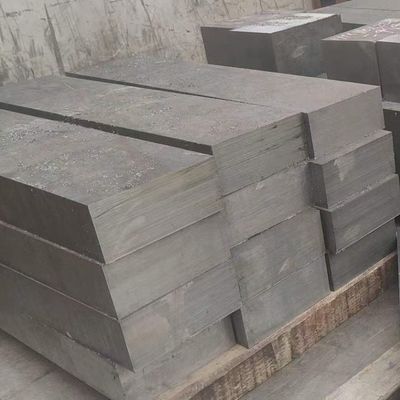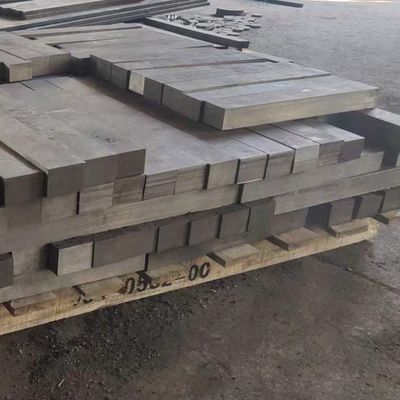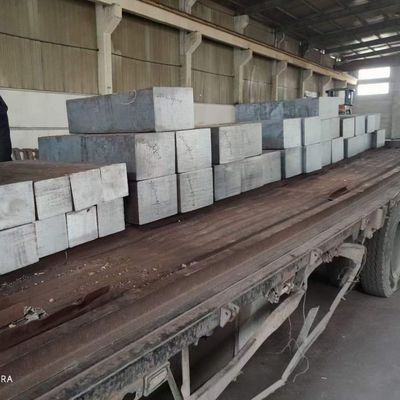-
 Raian IonescuMaterial quality very good. we have cooperate more than 10 Years. They trade lots kinds of steel material. All material quality good. They duty for all material quality. We are planing continue cooperate with them in the future
Raian IonescuMaterial quality very good. we have cooperate more than 10 Years. They trade lots kinds of steel material. All material quality good. They duty for all material quality. We are planing continue cooperate with them in the future
Forged Stainless Steel Plate Grade 304 316L 310S 321 2205 2507 Thickness 10 - 200mm Custom Cutting
| Place of Origin | China |
|---|---|
| Brand Name | DELTA |
| Certification | ISO |
| Model Number | 304 316L 310S 321 347 904L 2205 2507 |
| Minimum Order Quantity | 400 kgs |
| Price | 2400 -3220 USD/Ton |
| Packaging Details | wooden pallets + waterproof paper |
| Delivery Time | 5 - 12 days based on the quantity |
| Payment Terms | L/C, T/T, Western Union |
| Supply Ability | 10 Ton per week |
| Products | Forged Stainless Steel Plates | Grade | 304 316L 310S 321 347 904L 2205 2507 |
|---|---|---|---|
| Standard Size | 1000*2000mm 1219*2438mm 1500*6000mm | Thickness | 1.0 - 30.0mm |
| Brand | TISCO BAOSTEEL POSCO LISCO | Loading Port | Shanghai Port |
| MOQ | 200 Kgs | Packing | Wooden Pallets + Waterproof Paper |
| Highlight | 316L Stainless Steel Plate,2205 Stainless Steel Plate,304 Stainless Steel Plate |
||
Forged Stainless Steel Plate Grade 304 316L 310S 321 2205 2507 Thickness 10 - 200mm Custom Cutting
|
Material
|
200 300 400 Series stainless steel
|
|
Grade
|
201 202 301 303 304 304L 2205 2507 309 309S 310 310S 314 316L 316Ti 317L 321 347 334 2205 2507 409 409l 410 410S 420 420J1 420J2 430 441 444 904L
|
|
Standard
|
AISI ASTM JIS DIN EN BS
|
|
Tech
|
Cold rolled / Hot rolled / Forged
|
|
Thickness
|
Hot rolled: 3mm-16mm 16-150mm
Normal: 3.0 4.0 5.0 6.0 8.0 10.0 12.0 14.0 16.0
As per customer's request: 16-150mm Cold rolled: 0.3-6mm
Normal:0.3/0.4/0.5/0.6/0.7/0.8/0.9/1.0/1.2/1.5/2.0/2.5/3.0 As per customer's request: 4.0/5.0/6.0 |
|
Width&Length
|
1000mm-6000mm, or as per customer's request
Hot rolled: 1250*3000mm (4.1*10ft) 1500*3000mm (5*10ft) 1250*6000mm (4.1*19.6ft) 1500*6000mm (5*19.6ft) 1800*6000mm (5.9*19.6ft) 2000*6000mm(6.5*19.6ft) Cold rolled: 1000*2000mm (3.2*6.5ft) 1219*2438mm (4*8ft) 1500*3000mm (5*10ft) 1800 available 2000 available |
|
Place of Origin
|
Jiangsu China
|
|
Processing Service
|
Bending, Welding, Recoiling, Punching, Cutting
|
|
Tolerance
|
±1%
|
|
Surface Treatment
|
N0.1,2B,BA,6K, 8K, 12k, N0.4, HL, Mirrored,checkered etc
|
|
Payment
|
T/T terms, 30% pre-payment, 70% balance see B/L copy LC Western Union Paypal
|
|
Delivery Time
|
5-15 days for ordinary orders (standard orders <=50 ton); specified orders needs final confirmation as per customer's request
|
Why Choose Stainless Steel for Custom Forgings?
With high strength, corrosion resistance, and durability in extreme temperatures, stainless steel is one of the most widely used materials for custom forging applications. Available in various grades, each with a unique composition of elements for enhanced strength and corrosion resistance properties, stainless steel open-die forgings are used in products and manufacturing processes across a broad range of industries. If you’re looking for a material with superior strength, corrosion resistance properties, and aesthetic value, stainless steel might be the best choice for your forging needs.Most Common Grades of Stainless Steel
There are several grades of stainless steel alloys, each offering different properties ideal for unique applications. The most common stainless steel series of grades are the austenitic 300 series and the martensitic 400 series. The 300 and 400 series of stainless steel grades have key differences in chemical composition, properties, and applications:
- Chemical Composition: The 300 series of stainless steel grades are austenitic, meaning they have a face-centered cubic crystal structure. They are composed of chromium (18-20%) and nickel (8-10%). They also contain small amounts of carbon, manganese, phosphorus, sulfur, silicon, and nitrogen. In contrast, the 400 series of stainless steel grades are martensitic or ferritic, which means they have a body-centered cubic or face-centered cubic crystal structure. They mainly comprise chromium (11-27%) and little or no nickel. They also contain small amounts of carbon, manganese, phosphorus, sulfur, silicon, and sometimes molybdenum.
- Properties: The 300 series of stainless steel grades are known for their excellent corrosion resistance, high ductility, and low yield strength. They are also non-magnetic, have good weldability, and are easily formable. The 400 series of stainless steel grades have lower corrosion resistance, higher yield strength, and are magnetic. They are also harder and more brittle, making them more difficult to form and weld than the 300 series.
- Applications: The 300 series of stainless steel grades are commonly used in applications that require high corrosion resistance, including the food and beverage and medical industries. They are also used in commercial and consumer kitchen appliances, utensils, and equipment. In contrast, the 400 series of stainless steel grades are commonly used in applications that require high strength and wear resistance, including the automotive and aerospace industries.
Most Popular Stainless Steel Grades for Custom Forgings
While we work with all grades of stainless steel, the two most common grades we forge are in the 300 series: 304/304L and 316/316L stainless steel:
- 304/304L: 304 stainless steel is our most common grade. 304 stainless steel offers good corrosion resistance and is easy to weld. 304 is used to manufacture shafts, valve bodies, valve trim, and the food & beverage industry.
- 316/316L: 316 stainless steel is used for its very high level of corrosion resistance due to its higher nickel and molybdenum content. 316 stainless steel is ideal for marine applications, medical & pharmaceutical equipment, and other applications that require exposure to saltwater, corrosive chemicals, and harsh environments. 316 SS is generally more expensive than 304 SS.
What is the Forging Temperature for Stainless Steel?
Stainless steel is hot-forged at a temperature between 1700 and 2300°F, depending on the specific grade. Stainless steel retains its strength even when worked in extreme temperatures. If forged improperly, excessive temperatures during the forging process can cause grain coarsening, scale information, overheating, and burning, while underheating can cause cracking.
Advantages & Considerations for Forged Stainless Steel
When executed by skilled professionals, the forging process improves stainless steel's strength and corrosion resistance. It also creates a continuous grain flow that follows the stainless steel part. Forging provides the highest level of structural integrity for stainless steel parts than other metalworking processes, producing strong, uncompromised finished products.
However, as with any material, there can be challenges when forging stainless steel. Stainless steel can be difficult to fabricate, depending on the grade of stainless steel. Welding defects, inconsistent surfaces, difficulty removing scratches, and uneven polishing can all pose challenges for stainless steel if the material is mishandled or forged incorrectly. For the best results, always choose experienced professionals for your stainless steel forging needs.
![]()
![]()
![]()
![]()



